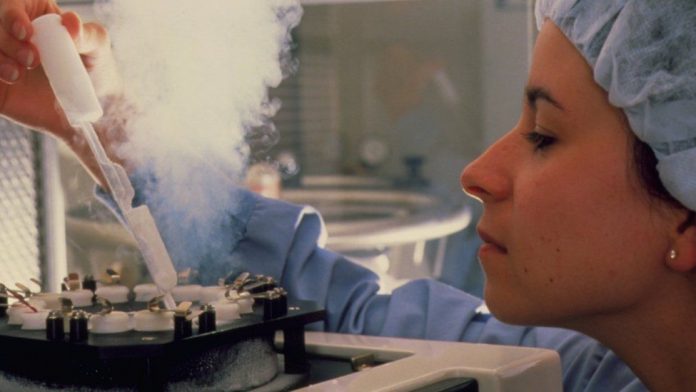Currently, the storage period is a maximum of 10 years, after which families must either undergo fertility treatment or have them destroyed.
Now, the Department of Health and Social Care is launching a public consultation about whether this limit should be changed following concerns that it could negatively impact women.
The number of women freezing their eggs has soared by 257 per cent since 2012, with 1,462 egg freezing cycles in 2017 compared to 410 in 2012, while freezing technologies have become more advanced.
Currently, only eggs which are stored for medical reasons, such as cancer treatments and premature infertility, can be preserved for longer – up to 55 years in total.
Both men and women are able to freeze their sperm and/or eggs for non-medical reasons, such as wanting to have children in future.
Caroline Dinenage, the minister for social care, said: “Every person should be given the best possible opportunity to start a family, which is why it is so important that our laws reflect the latest in technological advancements.








